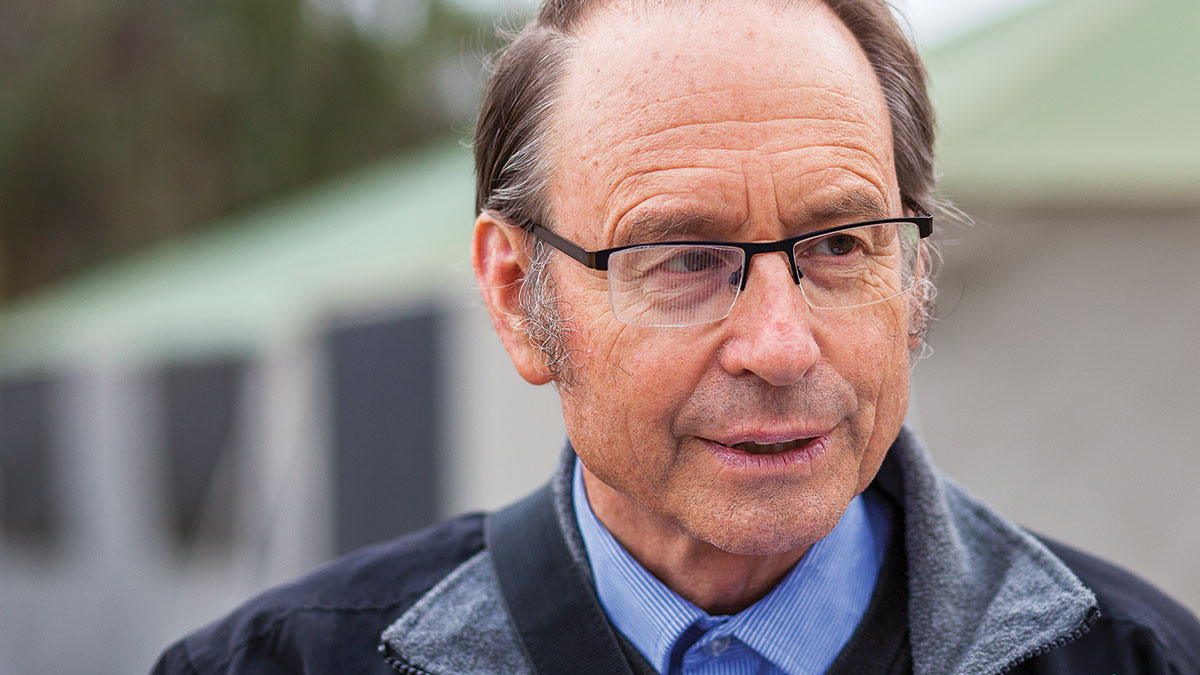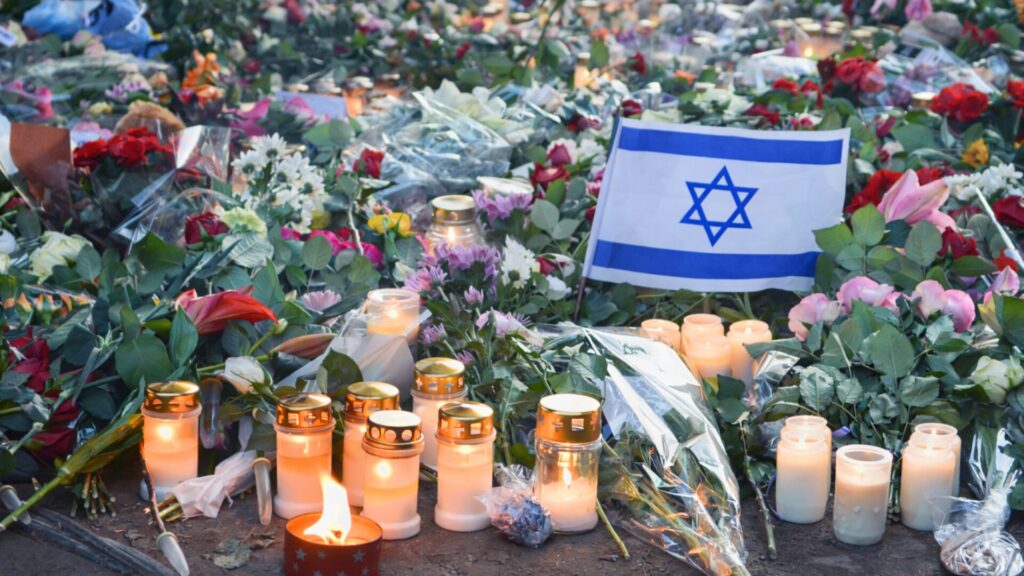Name: Don Fehlberg
Job: Remote Area Senior Pastor for ATSIM Ministries
Where: AUC, Melbourne, Victoria
What’s your official job title?
I’m the “Remote Area Senior Pastor for the Aboriginal and Torres Strait Islander Ministries (ATSIM)” of the Seventh-day Adventist Church in Australia (AUC). AUC tailored my job description to fit me, really. I’m also the Mamarapha College (WA) liaison officer, which means I help students with applications and help coordinate ABSTUDY (Commonwealth Government living allowances). I’m also the ATSIM evangelist.
How long have you been in this position, and where are you based?
We’re based in Melbourne, but we travel all the time. We’ve been doing this full time and working with the AUC since 2004. Previous to that, we were looking after an Aboriginal church in Port Augusta, SA.
What’s the best thing about your job?
Visiting the people, definitely. It’s a wonderful thing to be able to visit people. You become part of their lives and we really enjoy that. They have become like family to us. We know so many [people]; we’ve been involved with their baptisms, funerals, baby dedications, even with weddings and just the ups and downs of their lives. I have folk ring me up from all over Australia. And every day there are phone calls to pray for people, so we do a lot of praying over the phone.
What does a typical day for you look like?
Typical doesn’t happen so often. We spend a lot of time itinerating around Western Australia, Northern Territory and South Australia. I guess a typical day is when we’re on itinerary visiting in communities, and catching up with church members and our many contacts. We’ve gotten to know hundreds and hundreds of contacts over the years. Sometimes we’ll spend a day or two in one place, and sometimes if I’m running a series of meetings, I might spend a week or two in a community.
My wife and I travel together. She does most of the driving and while she’s driving, I can do work. I ring up where we’ve got a service, prepare sermons, do emails, take calls. One trip in 2019, we were away just over four months, from March to August. Sometimes I’m the only one who visits these people because there are no other pastors who call on remote areas. We also work with remote area local pastors to encourage and resource them, and I’ll visit with them when it’s possible.
How did God lead you to this job; what’s your “why”?
Going way back, I roomed with an Indigenous man at Avondale College for 12 months. He was from Dubbo and we got on famously. I’d met him previously when I was visiting Dubbo for my externship. A local pastor was studying with him, and I went along to the Bible study and he said he was thinking about coming to Avondale. I said that he should come and room with me, but I never thought more about it. Then the next year, out of the blue, he turned up at Avondale and said he wanted to room with me.
At Avondale, I was the president of Avondale Students Aerial Outreach (ASAO) society for 2.5 years. We organised teams to fly out to western New South Wales. I’ve had a love for people of other races for many years.
Are Aboriginal and Torres Strait Islander people more open to the gospel than westerners?
Absolutely, no question about it. Around 80 per cent of Indigenous people claim to be Christian—you don’t have to prove to them that Jesus is their Saviour. They may not be committed to Him or follow Him, but they have respect for Him. It’s interesting when you’re praying with a family, they will call everyone around. If you’re talking with a lady, she’ll call her husband and children. The teenagers will take off their hats and have a prayer. It’s quite a different atmosphere than in a Western community.
Does dreamtime spirituality still influence Aboriginal Christians?
The dreamtime is still alive; there are stories and so on, some of them tie in with Bible stories. I’m not aware of any dreamtime second coming, but it’s interesting that many Aboriginal people I know have had dreams about the second coming. I believe that dreams are very much a means that God communicates to the Aboriginal people. When you struggle with literacy and can’t read so well, God uses means you can understand.
What’s the biggest lesson you’ve learned?
I guess one of the things that I’ve learned is that there are people scattered all over this vast land who are open to God’s last day message. When you first start, you think there might be some in places you’ve heard about like Jigalong or Willuna or Kempsey, but there are communities scattered all over the place who will respond to the call of Jesus. It’s just a matter of getting out.
What’s one challenge you’ve faced?
The personal challenge we face at the moment is that my wife has been diagnosed with cancer. She was first diagnosed eight years ago, and she’s been doing very well, but it seems to have arisen a bit again. She’s following a regime, but it’s a bit harder to do on the road.
Apart from that, the biggest challenge is just to get to everybody, all our contacts, in a year. That’s the enormity of the area, the work and the interest. There are places we could go that we haven’t visited yet. We could go and the door is open; they’ve said to come and visit—it’s not as though we’re scratching our heads wondering what to do next. In one trip last year, we visited 70 different towns and communities and ministered to them.
How do you share Jesus in your job?
As the pastor, many people come and tell me they want to change their ways. And that’s why they want to come to Mamarapha because they want to learn more about Jesus and the Bible. So then we pray with them and we encourage them in their walk with Jesus and to be willing to make that commitment. [pullquote]
What’s something that would surprise people about your job?
The huge distances that we cover. Like the Kimberley in WA is [twice the size of Victoria], and it’s a long way from Perth. The distances are huge, and the challenges are huge in being able to get to all of these places.
I also think that many people would be surprised with the simplicity of how the people live in contrast to how people live in Sydney, for example. Most of them have homes, but often only filled with basic possessions. Some communities are more than eight hours travel to the nearest town, so you don’t go for a bottle of milk. Major communities have a one-stop shop, but smaller outstations don’t.
There is a surprising lack of fresh fruit and vegetables, because a truck only comes once a fortnight to stock them. And they’re incredibly expensive. We have folk who say, “We would like to eat healthy, but we just can’t.” It’s a major challenge in closing the gap. Even baked beans are two or three times the price you’d pay in Sydney.
Your work might seem larger-than-life. Do you ever get exhausted by your job?
We do get exhausted sometimes. We’re getting older so we don’t bounce quite like we used to. But overall we’re pretty good. We enjoy what we’re doing, visiting the people and connecting with them and running evangelistic programs and seeing folk coming to Mamarapha College. On the last trip we signed up 47 students—so that’s exciting. We go from one exciting event to the next, we can hardly catch our breath sometimes.
What goals do you have for the future?
We’d really like to see what’s been established, maintained, and for it to grow and develop further. One of my dreams is to get some circuit-riding pastors who could look after the remote areas. Our pastor in Broome at the moment looks after the Kimberley as well, but it is a big challenge to have two churches and then to have an area that is thousands of kilometres away. But if we had a circuit-riding preacher who could travel around and come by every couple of months and meet with members, that would grow it even faster. Considering that we only visit some of these places once a year, the Lord has blessed wonderfully. Just imagine if someone was to visit five or six times a year! People would respond. They’re hungry for the gospel, and we want to give it to them.








